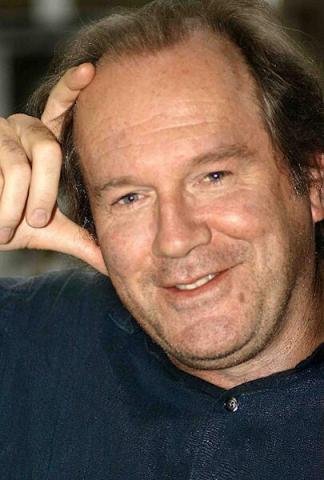William Boyd’s New Literary Thriller Traverses Vienna and London Circa WWI

Waiting for Sunrise
William Boyd
Harper, 353 pages
The British writer William Boyd has written an acknowledged (though not acknowledged enough) masterpiece, Any Human Heart, a faux-journal spanning the 20th century that expertly captures the change of voice as its fictional author grows older and wiser. His novel, Restless, is a superior “entertainment” (as Graham Greene once called his own spy novels), while his most recent novel, Ordinary Thunderstorms, shoots out of the gate with an ordinary-man-robbed-of-his-identity premise and ends in bewildering anti-climax.
Waiting for Sunrise, set in pre-World War I Vienna and wartime London, continues in the vein of literary thriller, with equally frustrating results. Lysander Rief is a young actor who travels to Vienna in search of a cure for a sexual dysfunction. Later, he serves the interests of British counter-espionage.
Boyd is an immensely gifted and adroit writer, whose control of language places the reader immediately within the world of his characters. Over the years, his prose—always vivid and cinematic—has condensed to a sort of a crystalline purity, both elegant and lucid. Take, for example, this description of the view from his therapist’s office at Wasagasse 42:
“He moved to the window that overlooked the small central courtyard of the apartment building. A tree grew there—a sycamore, he saw, at least he could identify some trees—in a square of tramped browning grass, edged by the disused carriage house and loose boxes and, as he watched, an old, aproned woman appeared from them, effortfully limp-lugging a brimming coal scuttle. He turned away and paced around, carefully folding back with the toe of his shoe the flipped-over corner of the worn Persian rug on the parquet floor.”
This eye for detail serves Boyd well in conjuring up the hothouse atmosphere of 1913 Austria, as psychotherapy emerges from its birth-struggle and artists and soap-box orators vie for attention on Viennese street corners. Darker international forces are gathering just around the corner but, like many others at the time, Lysander is barely aware of them. He’s busy attempting to address his psychological problem with the help of Dr. Bensimon, a Freudian acolyte, and with one of the doctor’s patients, the alluring and mysterious Hettie Bull.
Lysander’s problem is fairly quickly resolved, but soon he finds himself imprisoned by Austrian authorities on a trumped-up rape charge. Following his escape to England, British intelligence recruits him to unearth the person who’s sending information about the allied war effort to the Germans. The mission takes him to Switzerland and, after an act of unexpected violence, back to London to pursue the search for the traitor.
Unfortunately, tension is undermined by a curious lack of events in the first third of the novel, along with the frequent appearance of secondary characters who add little beyond some local color. Lysander spends too much time hanging around Vienna while the reader grows impatient for the plot to kick in.
When things do heat up, there are two or three beautifully wrought set-pieces—including a scene of interrogation and torture using household cleaning tools, circa 1914—but a stop-and-start quality to the narrative ultimately robs it of what a thriller needs most: heedless forward motion.
At the same time, it’s hard to beat a writer who paints a scene as deftly as this one, when a German Zeppelin appears over London on a night-time bombing raid:
“Lysander looked out over the night city, some seven storeys up from street level. To his eyes it could have been peacetime—motor cars and omnibuses, headlights gleaming, shop fronts lit beneath their awnings, ribbons of streetlamps casting their pearly glow. Here and there were areas of approximate darkness but it was almost inviting, he imagined, the captain of this airship somewhere overhead. Where shall I drop my bombs? Here? Or there? And, as if his thoughts had been read, the first searchlight found the Zeppelin and then another two joined it. Lysander’s first thought was, my god, so huge—gigantic—and serenely beautiful. It was very high and moving forward steadily—how fast, he couldn’t tell. The increasing noise from the artillery fire blocked out the sound of its engines as it seemed to float unaided above them, driven on by night winds rather than its motors.”
Waiting for Sunrise amply displays the talent of one of Great Britain’s best living writers (recently anointed to pen the next in the James Bond series), but readers new to William Boyd may find Any Human Heart a better example of a master novelist at work.
Author Bio:
A Q&A with Lee Polevoi, Highbrow Magazine’s chief book critic, can be found here.
For Highbrow Magazine
Photo Credit: Michael Fennel (Wikipedia.org, Creative Commons)































































































































































































































































































































